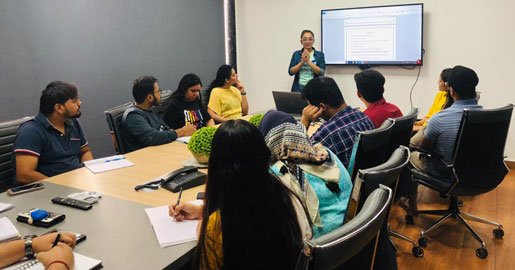
Guide on IELTS Speaking Test
IELTS Speaking test is of shortest duration as compared to other sections of the IELTS exam. But it is also one of the crucial parts of the IELTS test and faring well in this section will definitely help you in getting higher overall band score. IELTS Speaking test assesses you on a number of areas and tests your ability to speak and present your ideas in English language.
IELTS Speaking format
The IELTS Speaking test takes about 12 to 15 minutes to complete and consists of three parts. Every part of the test is recorded for further reference by the examiners.
IELTS Speaking Part 1
 The examiner asks you general questions about yourself and on a range of common subjects like your home, family, job experience, studies, and interests or hobbies. The IELTS Speaking part 1 takes about 4 to 5 minutes to complete.
The examiner asks you general questions about yourself and on a range of common subjects like your home, family, job experience, studies, and interests or hobbies. The IELTS Speaking part 1 takes about 4 to 5 minutes to complete.
IELTS Speaking Part 2
You will be given a cue card consisting of the topic on which you will be asked talk or deliver a monologue. Before you start speaking, you will have 1 to 2 minutes to plan what you will be going to speak. To complete this part of the test, the examiner will then ask one or two questions on the same topic.
IELTS Speaking Part 3
In IELTS Speaking test part 3, you will be asked questions exploring the topic and what you said about it in IELTS Speaking Test part 2. Such questions will encourage you to address more abstract ideas and issues related to that topic. This part of the test ranges from 4 to 5 minutes.
What does IELTS Speaking test check?
The examiners assess your fluency and continuity, lexicon, correct grammar usage, sentence structures and pronunciation. Nevertheless, this does not mean that with a British or American accent you can score well. Accent is not tested in IELTS speaking test. All you need to take care of is that you speak English clearly and fluently. You must be confident, be prepared for expressing your ideas and speak very clearly.
IELTS Speaking test tips
1. Have a strategy
Strategic planning is beneficial in nearly every exam. Before starting to speak, it should be clear in your mind that what you are going to speak and what words are you choosing while speaking. It is a good idea to begin with a brief introduction, followed by a brief summary, go on to talk about your background and your thoughts about it and finish it with your opinion on future plans related to that topic.
2. Expand your idea
It is necessary to expand your ideas to express them clearly. To see if it is relevant, you will need to break down your ideas and critically analyze each component. Taking your ideas for their face value is unwise. A thorough inspection of your ideas will help you to skim the unnecessary elements automatically.
3. Manage your time
It is really important that you utilize your time wisely. You must make the best use of your time, divide the time accordingly and elaborate each point. Make sure not to clatter away but speak clearly and at a consistent period.
4. Prepare well
It takes a strategic approach to plan for your IELTS Speaking test. Coaching from an IELTS expert trainer will help you achieve the desired band score. A mentor will be able to understand your weak areas and provide guidance accordingly.
How much to speak in IELTS Speaking test
When it comes to how you should communicate during the IELTS Speaking test section. It is advisable to speak as much as possible. The more you speak, the more good vocabulary words you use the better. But do make sure to speak only relevant ideas. Don’t repeat yourself just for the sake of talking, but try speaking with reason.
What to do if you make an error while speaking?
Sometimes the wrong words come out even when you speak your native tongue. You may be talking too quickly or you may just say the wrong word unintentionally. If you say something wrong, then you can correct yourself. This will show the interviewer that you are conscious of what you are speaking and that you know the answer.
Conclusion
Behind that perfect band score goes a lot of hard work, quality guidance and time management expertise. If you’re looking for the best, you need to concentrate on the specifics and practice for scoring well in IELTS Speaking test.
